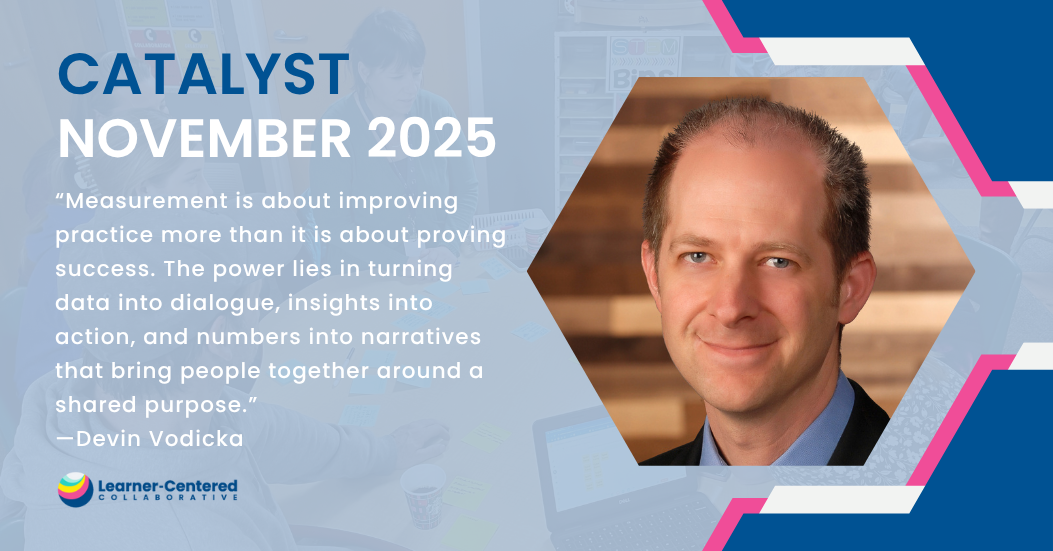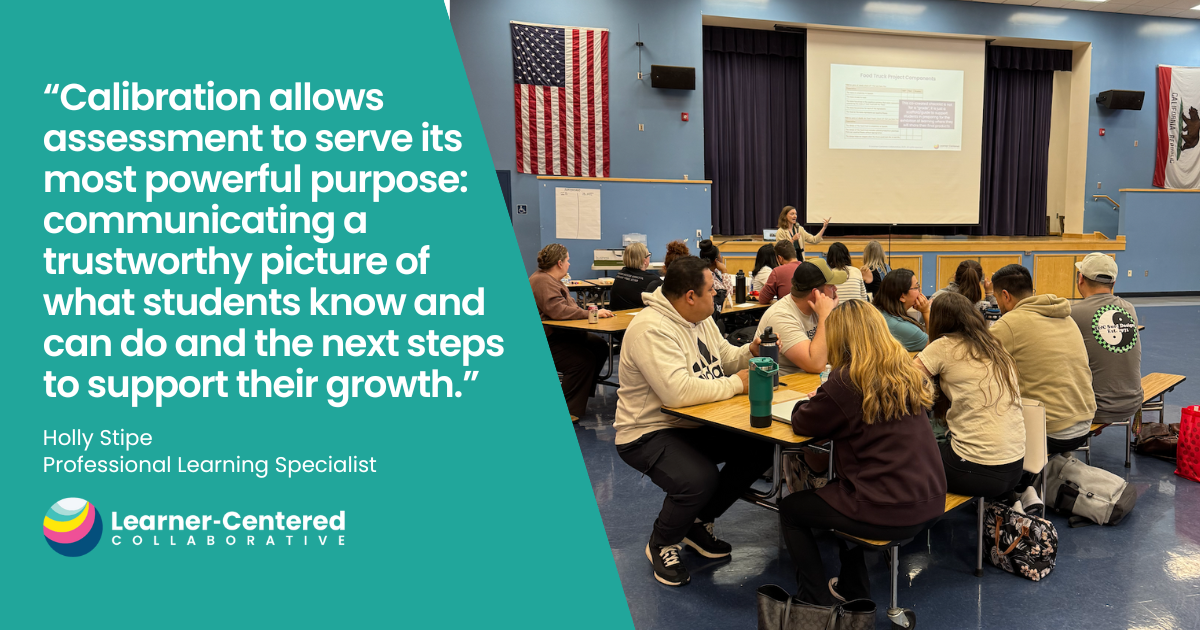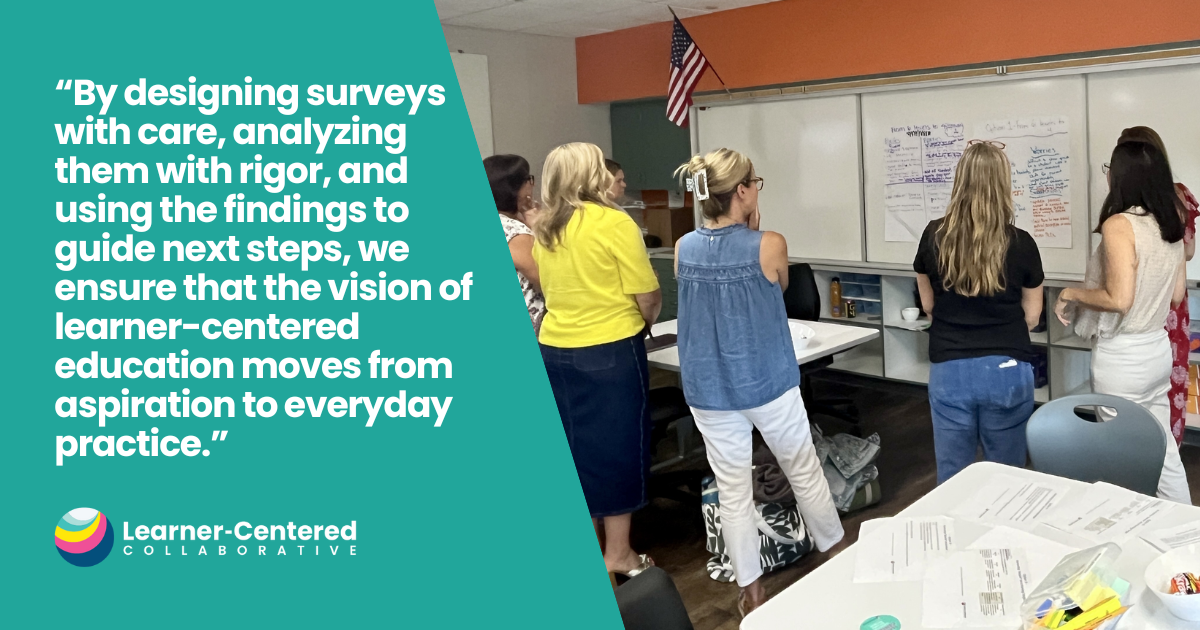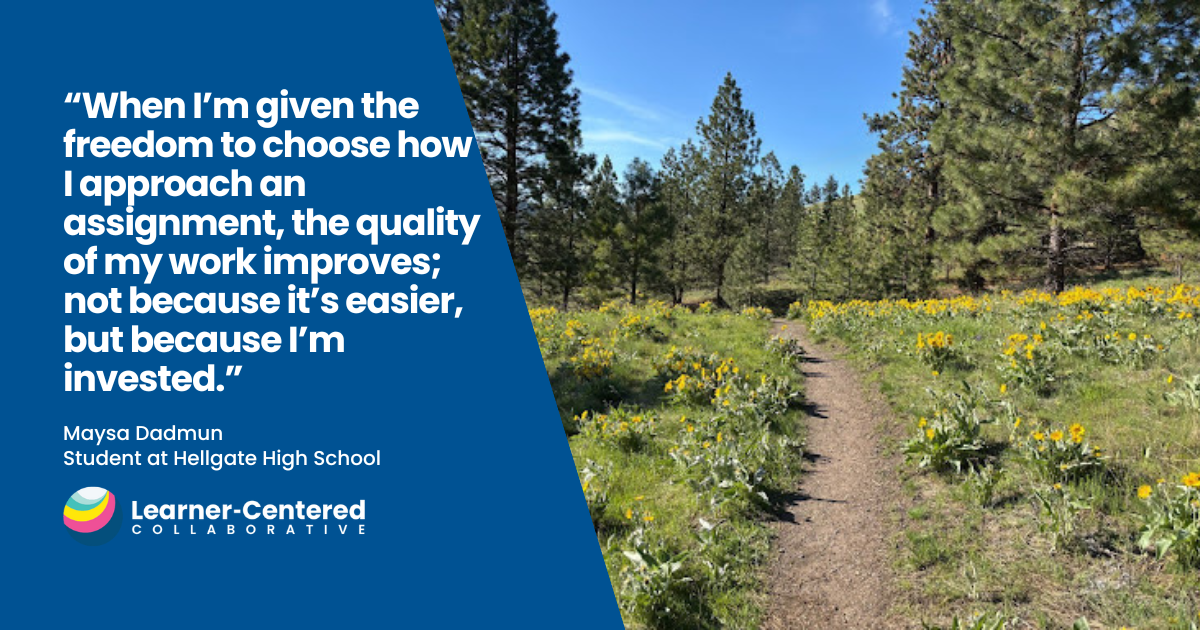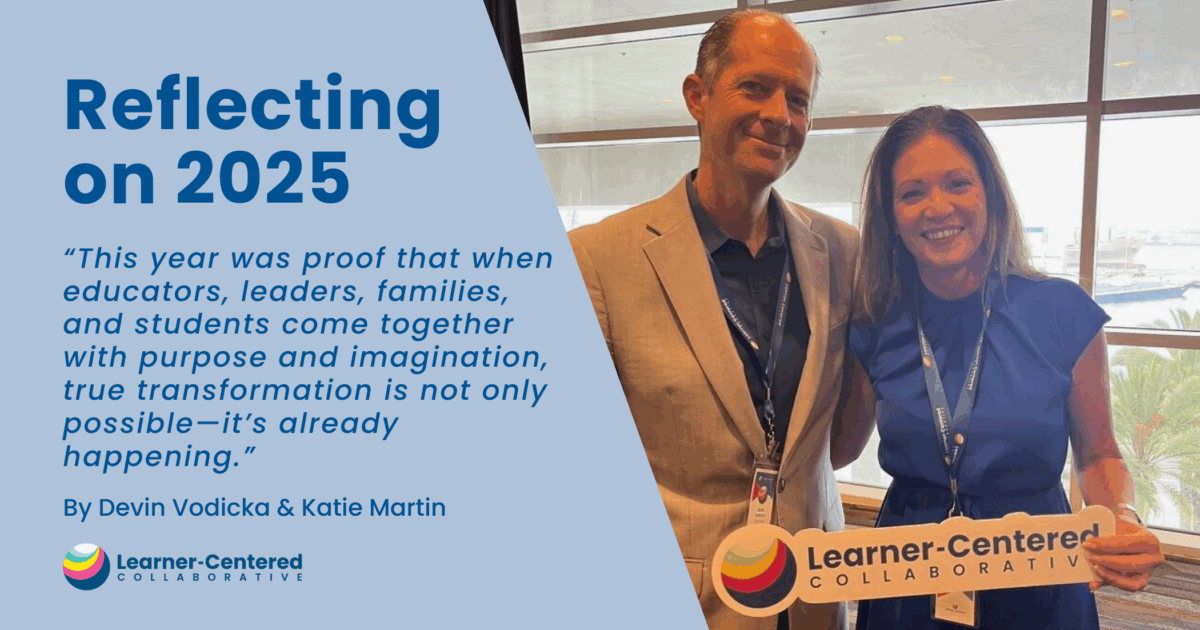Operationalizing the Vision in Escondido Union School District
Contributions from César Morales, Learner-Centered Collaborative and Laura Philyaw, Ed.D., Escondido Union School District
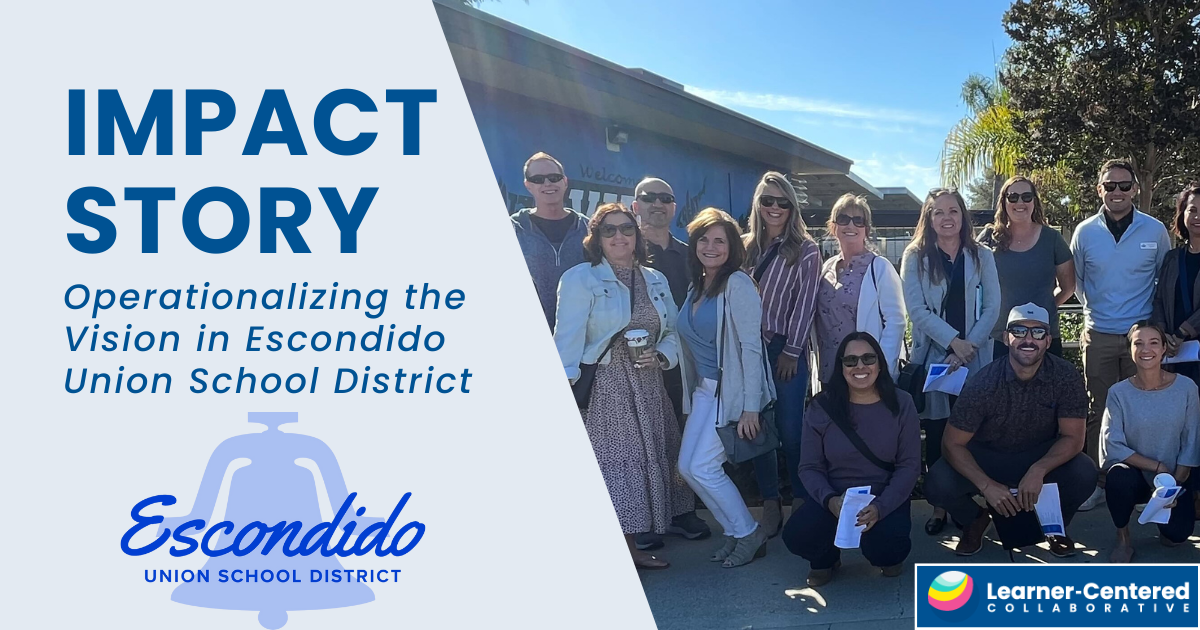
Coming out of the COVID-19 pandemic, Escondido Union School District (EUSD) faced a pivotal question from Superintendent Dr. Luis Ibarra: “Are we going back to the same status quo? Was where we were working for us?” The answer led EUSD not just to articulate a new vision, but to fully operationalize it across their district.
In the district’s Framework for the Future video, Dr. Ibarra shared how they approached this challenge: “During Covid, we worked collaboratively with our labor partners, our classified staff, our teaching staff, our parents and our community members,” Dr. Ibarra explained. What emerged was a clear commitment to move beyond aspirational statements and create concrete systems that would “actualize the unlimited potential of every learner.”
Watch Dr. Ibarra’s full remarks about EUSD’s Framework for the Future here
This commitment to operationalize their vision led EUSD to partner with Learner-Centered Collaborative. Together, we’re helping them move from aspiration to action, engaging their entire community in creating practical, meaningful changes in how teaching and learning happen across the K-8 district.
Putting Students at the Center
In describing this shift in the video, Dr. Ibarra explains: “During the pandemic, we had this image, where … we always put safety in the middle of everything that we were going to do. As we were transitioning out of Covid, I substituted [to}…now put the students at the center of all that we’re going to do, hence this learner-centered approach.”
To make this shift real, we facilitated 16 student forums and brought together over 60 community members to form a vibrant and diverse Design Team. This team included teachers, leaders, labor partners, and support staff who would help design the practical steps needed to bring EUSD’s vision to life.

Creating Systems for Change
Working with the Design Team, we developed specific tools and frameworks to operationalize EUSD’s vision:
- A comprehensive Framework for the Future that serves as EUSD’s north star, defining their learner profile and establishing clear expectations for student success. This board-approved document now drives decision-making and resource allocation across the district.
- Detailed learner progressions that guide student development across grade levels, from early childhood through middle school. Created by teachers for teachers, these progressions translate the high-level aspirations of the learner profile into concrete, observable student behaviors and skills.
- A new learning model that defines effective instruction through four key components: personalized learning, authentic experiences, competency-based approaches, and inclusive practices. This model provides educators with clear guidance for designing engaging learning experiences.
These tools and frameworks weren’t created in isolation – they were co-designed with EUSD’s community through an iterative process of feedback and improvement.
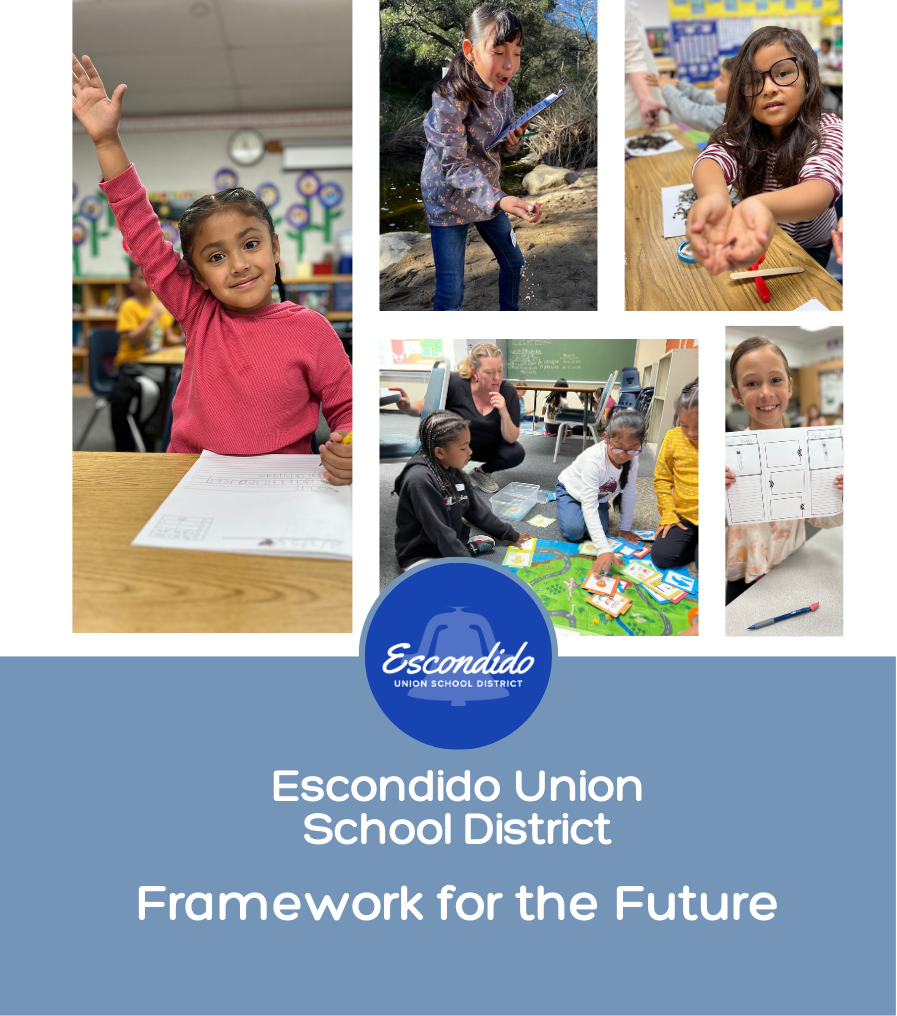
The work we are doing is about responding to the needs of our students. Times have changed and the needs of our students have changed and so we have to change, too. We are working towards transforming our system to provide meaningful authentic learning experiences that are truly for, about, and in the service of our students… It is about hope, and about our belief that our children are our future and that we can positively contribute to supporting each of them to actualize their unlimited potential.
– Laura Philyaw, Deputy Superintendent, Escondido Union School District
Creating Multiple Pathways
To bring these frameworks into practice, we’re supporting EUSD in creating multiple entry points for schools, recognizing that each school community has different needs and readiness levels:
- School Redesign: Four schools have completed comprehensive redesign plans, with five more joining this year. These schools are reimagining everything from scheduling and instruction to assessment and community engagement, all aligned with the EUSD Framework for the Future.
- Micro-Schools: New learning approaches are being implemented at the middle school level, where 150 seventh graders are experiencing interdisciplinary learning, student portfolios, and community-connected projects.
- Innovation Teams: Schools are testing specific elements of the EUSD Learning Model through smaller-scale initiatives, allowing for focused experimentation and learning that can inform broader implementation.
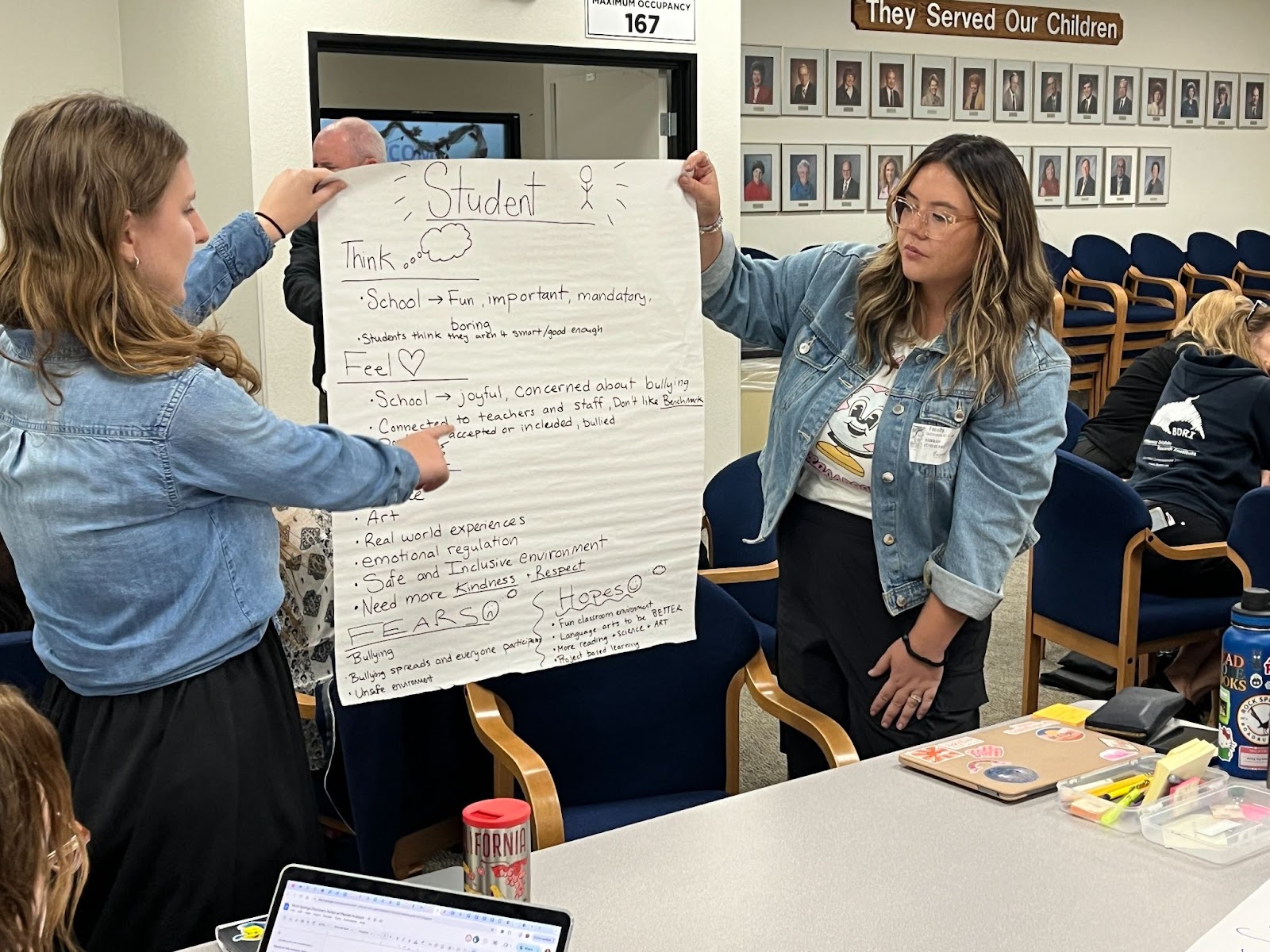
Building Internal Capacity
To ensure sustainable implementation, we’re helping EUSD build internal capacity through:
- Leadership academy convenings for principals to deepen their understanding of the Framework for the Future and develop skills for leading change
- Professional learning communities where educators collaborate, share best practices, and support each other’s growth
- Learning walks to celebrate bright spots and create opportunities for peer learning across schools
- Principal coaching support for implementation teams to help navigate challenges and accelerate progress
The impact is evident in the numbers: 97.43% positive feedback from participants and 99 courses completed by 33 educators across all Learning Model domains. This high level of engagement and satisfaction indicates that EUSD’s educators are not just participating in these initiatives, but finding them valuable for their professional growth and classroom practice.

Looking Ahead
“Our district has a reputation for innovation,” reflects Dr. Ibarra, “and as I see it, we’re ready and ripe for this. Really, it’s giving you all permission to be creative, to do these engaging lessons, to think outside the box.”
As our partnership with EUSD continues to evolve, we’re focusing on several key priorities identified in our collaborative work:
- Supporting five new schools joining the School Redesign process
- Leveraging School Leader Academy sessions to deepen understanding of the EUSD Learning Model
- Supporting practitioners in implementing the EUSD Learning Model
Through this work, EUSD is showing how a district can move from vision to reality, creating concrete systems and practices that put students at the center of learning.
Ready to operationalize your district’s vision? Connect with us today to explore how we can support your journey.
